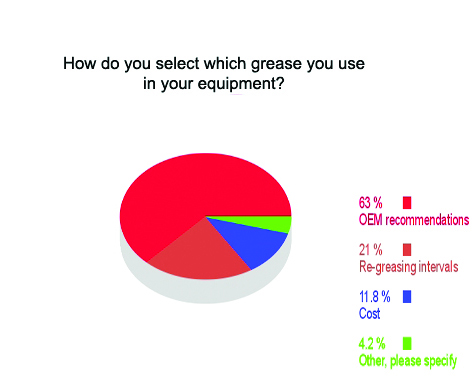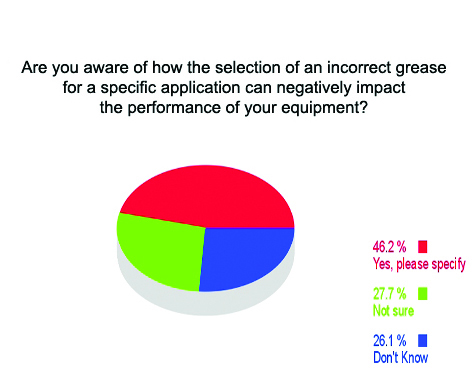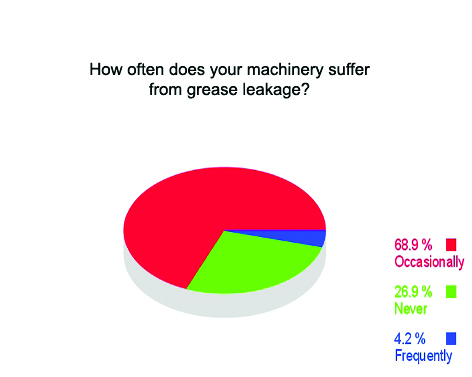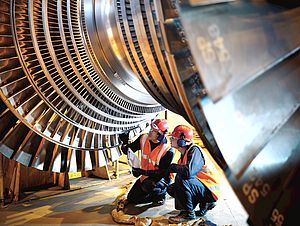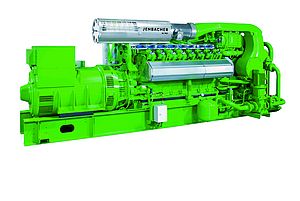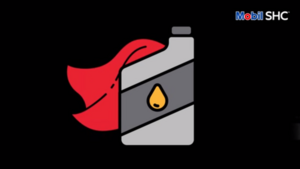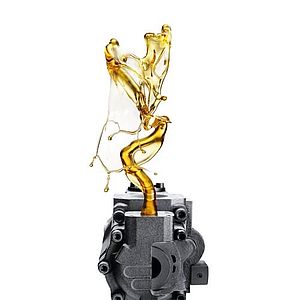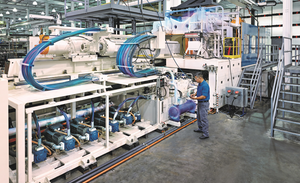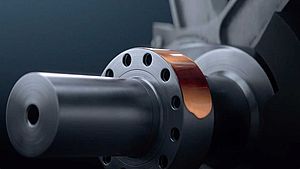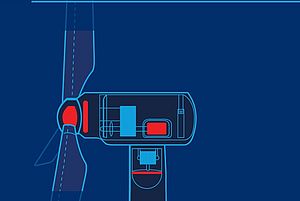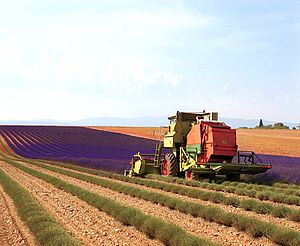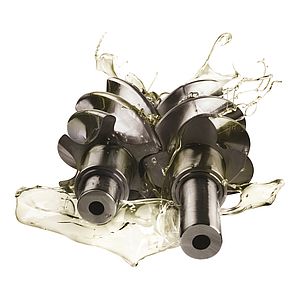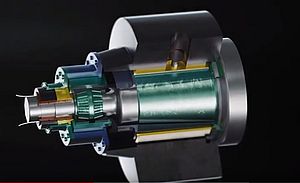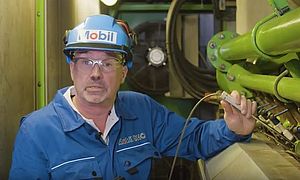In cooperation with ExxonMobil, TIMGlobal Media (IEN Europe, PCN Europe, TR, PEI, IEN Italia) recently conducted a survey on how machine operators use oils and greases to improve the productivity of their machinery. The following article summarizes the results of that survey.
Industry experts generally agree that between 40% and 75% of all wear in industrial equipment is in some way related to lubrication, making lubrication responsible for between 25% and 60% of lost usefulness of industrial equipment. As a result, lubricants play a very important role when it comes to the productivity and energy-efficiency of industrial machinery. The five main functions of a lubricant are to:
· Reduce friction and prevent wear
· Help clean the engine or machine of contaminants
· Seal pistons and cylinders for optimum operating efficiency
· Cool high temperature areas of engines and machinery
· Protect against rust and corrosion of metal parts
The role of greases
There are many applications where greases are recommended over lubricating oil. Typically, greases are applied to mechanisms where lubrication is infrequent or difficult, or where lubricating oil cannot stay in position. These include: electric motors, home blenders, automotive wheel bearings, wind turbine main bearings, cement mill lubrication, and many steel mill lubrication points.
Grease can be thought of as a sponge soaked with lubricating oil. Upon application of external stresses, the thickener (sponge) releases the oil to lubricate the mechanical parts; when the stress is removed the thickener re-absorbs a portion of the released oil for later use.
But how much do industrial operators really know about greases? How do they rate the importance of a grease? Do they select their grease deliberately, and what factors play a role in their decision making process? Do they see a correlation between their machine performance and the greases they use?
These are just some of the questions that we asked in our recent survey, which highlighted there is still great uncertainty in the marketplace on this important topic.
An opportunity for improvement? Machinery downtime has increased in the past 12 months
The first question of the survey focused on the issue of machinery downtime due to poor lubrication. While almost 59 percent of operators stated that it had stayed the same in the past 12 months, roughly 22 percent said that downtime had increased by up to 5 percent. More than 14 percent of the survey participants even stated that it had risen between 5 to 10 percent. Taking into account the 2.5 percent where downtime increased by even more than 10 percent, this means that, for almost 40 percent, the offline hours of their machinery were higher than the year before.
Flawless operation of electric motors is a key factor
According to the survey results there is no doubt among machine operators that the operation of electric motors - where correct grease application plays a key role - is fundamental to the successful operation of their enterprise: For more than 90 percent, the flawless functioning of electric motors is crucial or important. The majority (68.9 percent) experience occasional grease leakage of their machinery, while roughly 27 percent state that they don't have a problem with this issue at all.
The fact that more than half of the respondents stated that they have increased the output of a key application in their plant within recent years may be due to several reasons: the purchase of new, high-performance equipment, more intelligent maintenance strategies, or the use of better lubricants. For approximately 30 percent, the output of their machinery stayed the same.
Selecting the correct grease
With regard to the actual selection of the grease, the results indicated that equipment builder recommendations have a huge influence on the operator: 63 percent said that they select their grease according to OEM recommendations.
The need for technical expertise & support
It is clear that machine operators' would benefit from engaging with expert lubricant engineers, given that far more than half of the respondents (53.8 percent) answered that they are 'not sure' or 'don't know' that the selection of an inappropriate grease for a specific application can negatively impact the performance of their equipment.
The lack of information is also underlined by the fact that 65.5 percent of the machine operators use the same grease in winter and summer, when best practice is to select an appropriate grease for the change in operating conditions. Only around 20 percent take into account the NLGI grades of greases that describe their relative hardness. The NLGI consistency number is one out of several criteria when it comes to which grease should be used for a certain type of application or in a certain climatic environment.
On the other hand, around 46 percent of the respondents clearly recognised the potential problems that can be caused by the incorrect grease selection. Below are just some of the potential problems cited: increased wear and energy consumption, loss of revenue due to production breakdown; corrosion caused by mixing different kinds of greases; higher Total Costs of Ownership (TCO) for their machinery.
Remarkably, there were some participants in the survey that even have certified tribology experts within their staff who help to guide them on the correct selection.
Consistent monitoring
As stated above, the correct grease selection is key to supporting the protection and productivity of industrial machinery. In line with this, ongoing monitoring and analysis of a grease is an important part of any equipment maintenance plan. By closely monitoring your grease, abnormalities can identified which may lead to machine wear, lubricant contamination or degradation. Ignoring the condition of a machine can result in unplanned downtime and a loss of production output.
Taking this into account, it is all the more surprising that over 45 percent of the respondents only evaluate the greases they use for their machinery when a problem occurs. Less than 20 percent analyse their grease on an annual basis, and only a quarter of the participants in the survey do it once a month or every six months. Worryingly, more than 10 percent answered that they never check the grease quality.
Measures to improve machine performance
However, it appears there is a growing appetite for and recognition of the importance of engaging in best practice grease selection and monitoring. When asked how they plan to improve the performance of their machinery, more than 36 percent respondents said that they intend to use a high-performance lubricant in the future. Almost 32 percent of the participants said that they will increase the monitoring of their equipment and will look to introduce an oil analysis monitoring programme.
Mohamed Mourad, Industrial Marketing Advisor Europe, Africa & Middle East ExxonMobil Fuels & Lubricants, comments: "Greases have varying priorities which are designed to ensure they can best operate under certain conditions. To select the right grease, it is essential to consider conditions such as machine speed, load level, ambient temperature and the type and size of a bearing.
With businesses under increasing pressure to reduce costs and to increase productivity, the emphasis on care and maintenance of equipment is rising. Part of that maintenance involves choosing the right grease. For that reason, it's important to choose an experienced grease supplier who has the technical expertise to help you select the optimum grease for your operation".
Mourad concludes: "Understanding how to select the right grease for your operation can make a real difference to the productivity of your operations and give your business a competitive edge."
In the next issue of IEN Europe look out for our educational feature: Best Practice for Choosing the Right Grease for Your Applications'.


